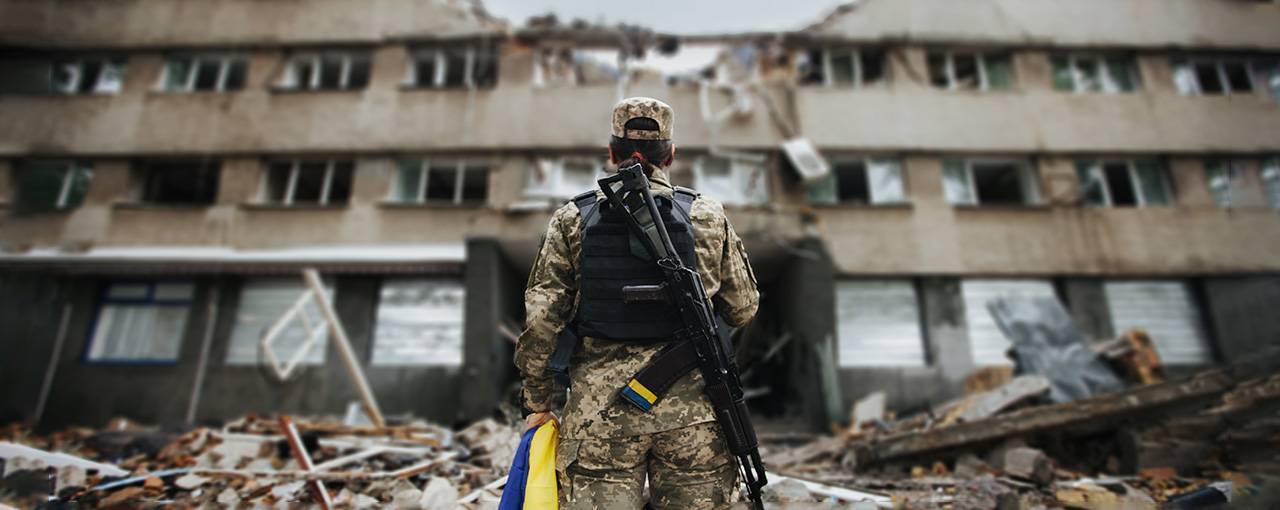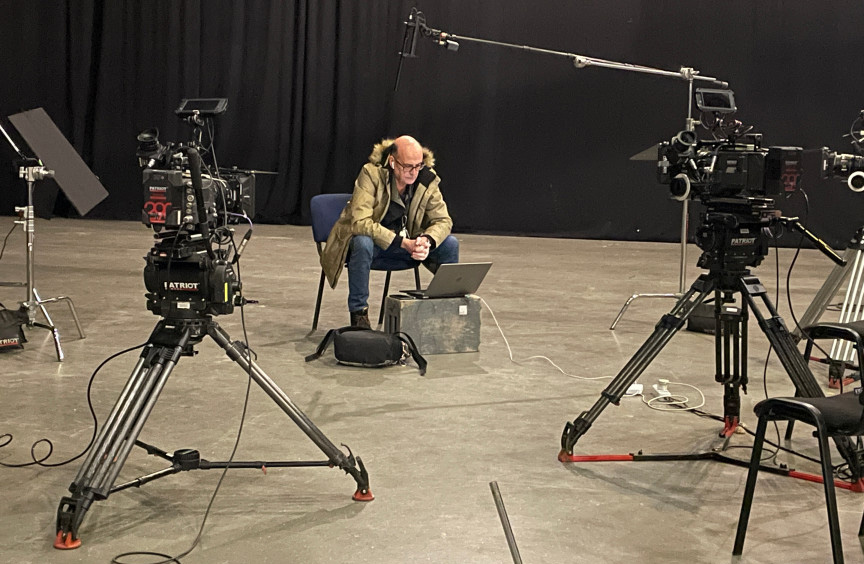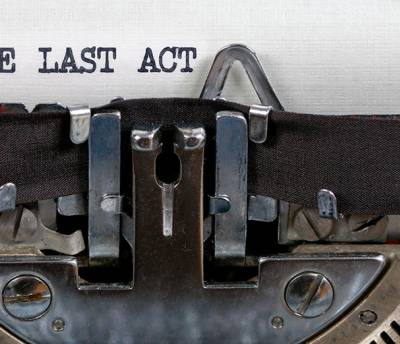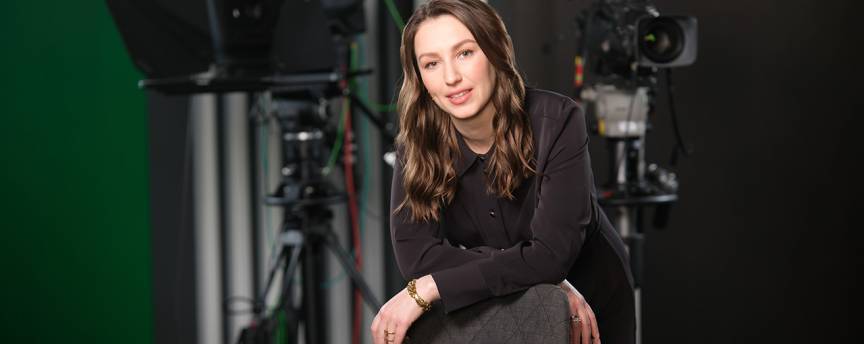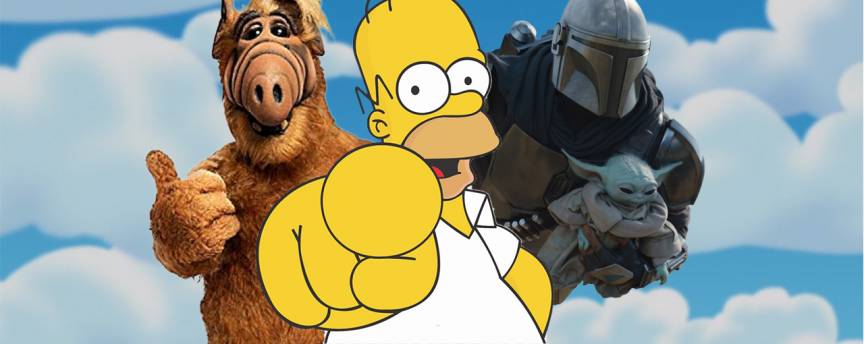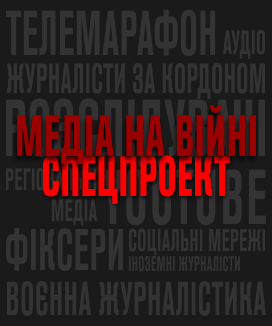“Documentary projects generally move much faster than feature ones. But yes, our deadlines were very, very tight. And to be honest, even now, I don't understand how we managed it. But somehow it succeeded – probably because all of us in Ukraine really needed it," says co-producer Kateryna Vyshnevska about the Citizens at War: A Year in Ukraine project.
Excluding the pre-production stage, the production was launched in the last days of November 2022. And now, on the anniversary of the full-scale invasion, the first three out of six episodes of the premium documentary series produced by Ukraine (FILM.UA Group), Australia (Tilt Media), and Great Britain (GTV Docs) are ready to be shown. The digital premiere took place on February 20, followed by the TV premiere soon. The customer is the leading German broadcaster – the TV channel ZDF. We are talking about a unique project designed to explain to the world what kind of indomitable people Ukrainians are.
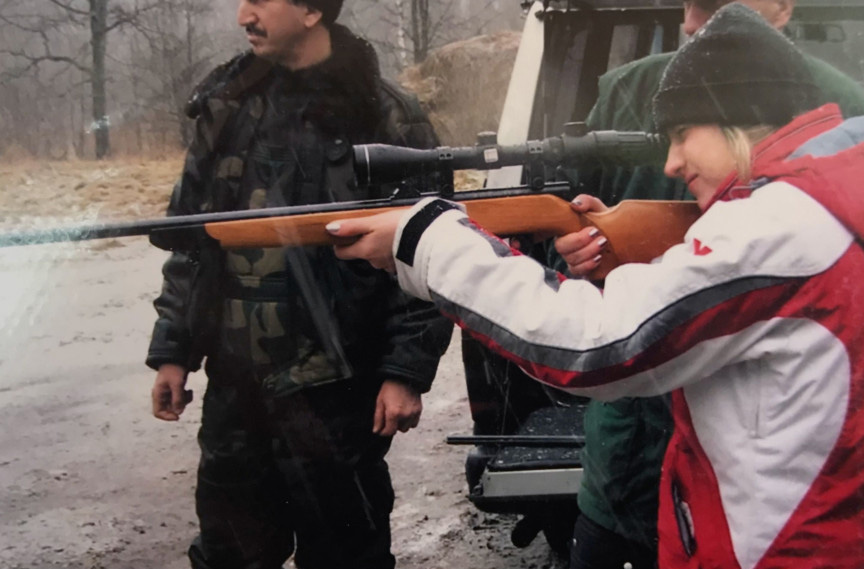
An Idea Born on Napkins
Currently, the Citizens at War production team consists of four people: Kateryna Vyshnevska, Victor Mirsky (FILM.UA Group), Chris Hilton (Tilt Media), and Tilman Remme (GTV Docs). But the idea of the project was born in the co-creation of Vyshnevska and Hilton.
“Chris has been a friend of mine for many years. And from the first days of the full-scale invasion, he, like all friends, was worried, asked how I was doing and was very concerned about everything that happened to Ukraine, – recalls Kateryna. – Since the beginning of the full-scale war, we have always talked about how important this event is for the world and humanity in general. And when everyone talked about why such a small country did not surrender to Russia, it became obvious that the answer to this question was people. Citizens of Ukraine at all levels. This is the number one citizen, Zelensky, who stayed even though he had the opportunity to leave the country. It became a motivating factor for all the rest: if the president is fighting, so will we and ordinary citizens – military, volunteers, doctors, men, women, children, people who care for animals, etc. When Chris and I met in person for the first time since the beginning of the full-scale war – it was in May at an industrial event in Los Angeles – we decided to tell the world about these people, about us. I remember how early in the morning Chris came to me with bagels, and we just started writing on napkins what we should talk about in this project."
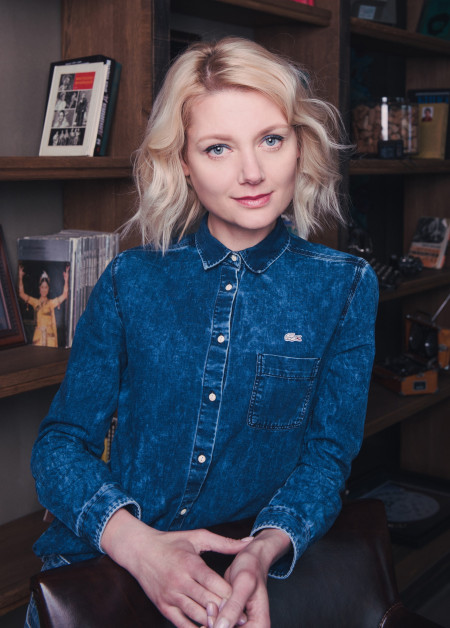 As the producer recalls, a lot of ideas were born back then. But from the very beginning, there was a clear understanding that it was necessary to somehow limit them. Communication with potential customers made it possible to narrow down the circle since certain topics were already being developed by other producers or TV channel teams. Therefore, in the final version, the documentary series was reduced to six thematic episodes: The First Ten Days, Zelensky, Women at War, Volunteer Army, Battle for Mariupol, and Russians. All these episodes are united by the approach: they are about people whose lives were changed by the war. There are 4-5 heroes in each episode. Thanks to archival photos and video materials of the heroes, viewers can trace their difficult and often dramatic path and transformation during almost a year of the war.
As the producer recalls, a lot of ideas were born back then. But from the very beginning, there was a clear understanding that it was necessary to somehow limit them. Communication with potential customers made it possible to narrow down the circle since certain topics were already being developed by other producers or TV channel teams. Therefore, in the final version, the documentary series was reduced to six thematic episodes: The First Ten Days, Zelensky, Women at War, Volunteer Army, Battle for Mariupol, and Russians. All these episodes are united by the approach: they are about people whose lives were changed by the war. There are 4-5 heroes in each episode. Thanks to archival photos and video materials of the heroes, viewers can trace their difficult and often dramatic path and transformation during almost a year of the war.
Since then Chris Hilton started traveling the world and attending events in search for funding. "I must say, I believed that Chris would not return empty-handed – he is a very experienced producer. And so it happened: at the end of the summer, he returned with good news – remembers Vyshnevska. – During the Sunny Side of the Doc documentary event in La Rochelle (France), Chris met his acquaintance, Tilman Remme, and proposed to him the idea of Citizens at War, which Tilman liked. And after that everything turned around."
Duties and Contributions
A large-scale tripartite project with four equal producers without any distortions? "Duties and areas of responsibility were divided very organically," says Kateryna.
The Ukrainian side, represented by Mirsky and Vyshnevska, was naturally responsible for organizing filming in Ukraine (including interviews with top figures of the state - Volodymyr Zelensky and the Head of the Office of the President Andriy Yermak), research, search for archival materials, etc.
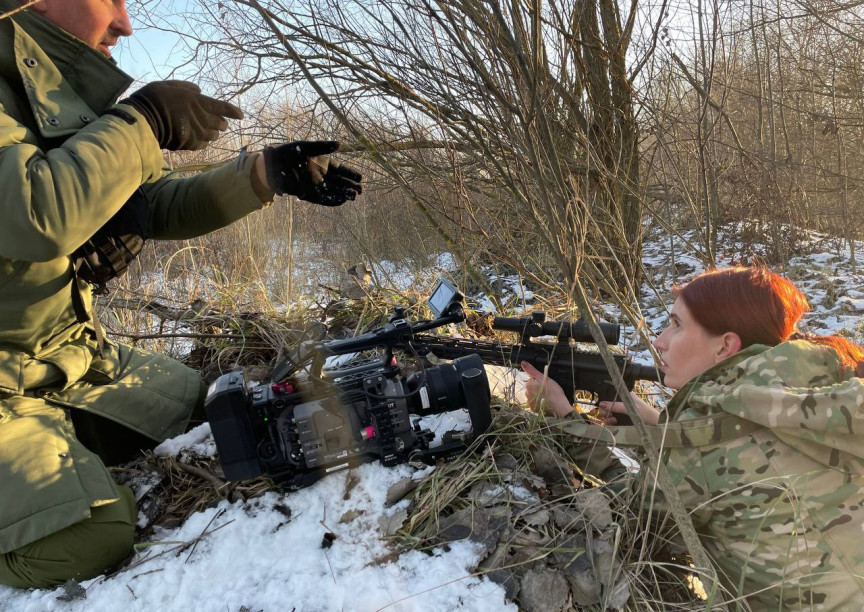
Tilman Remme took over the general organizational part: in particular, the staffing of creative groups in the Great Britain – Ukraine – Australia configuration, where he had directorial experience. Tilman is a German director and producer, winner of many awards (BAFTA, Emmy, etc.), who has been living and working in London for a long time. For 15 years, he worked for the BBC, where he created many powerful documentary projects. In particular, the six-part project The Nazis: A Warning from History (1997) and Colosseum: Rome's Arena of Death (2003), nominated for BAFTA and RTS awards. In recent years, Remme has been working at his own British production company GTV Docs. The producer also took over negotiations with German partners – it was easier for him, as a German, to find a common language with them. "Tilman has great connections with German broadcasters. He was the one who started negotiations with ZDF, the national and most powerful TV channel in Germany. When these negotiations were successful, and ZDF joined us as the main broadcaster (commissioning broadcaster), it became a certain decisive factor: the rest of the processes went a little easier," Vyshnevska says.
Co-producer Chris Hilton was responsible for finding the rest of the financing for the project. He was the one who attracted the world's leading distributor of high-quality creative content, the company Blue Ant International (Canada), which is now responsible for the international sales of Citizens at War.
"The strength of the project is that we own the rights to it in equal shares for three companies. But given the difficult financial conditions in which Ukrainian producers and the whole country are currently working, our contribution is a little less about finances and more about stories, expertise, our work, – shares Vyshnevska. – Money mostly comes from the international market. The main investor in the project is the ZDF channel. But several other broadcasters have already invested in it: for example, Histoire (France) and SVT (Sweden). We also have to rebate in Australia as an additional source of funding."
Production: Speed and Flexibility
Three creative and filming teams led by three directors (Daniela Walker, Guy Pugh, and Anke Lüdecke) are working on the six episodes of Citizens at War. "The creative part is headed by series producer Scotsman Charles Colville, a well-known person in his field. A series producer is the counterpart of a showrunner in a documentary – he is responsible for ensuring that these three groups and three directors work in a unified way so that all the episodes feel like part of a whole cycle. And Charles is a viscount and the head of the Colville clan, so as you can see, Ukraine is not indifferent to everyone!" – says Vyshnevska.
All the directors of the project, as well as many of the general project team, are foreigners located in London. And what about the Ukrainian part of the team? In particular, how many Ukrainians are working on the project in general? "You know, I never thought about how many of us there are. But now I counted 51 people involved in the project in one way or another, – admits Kateryna. – These are our producers Serhii Demidov, Sasha Berezovska, Maksim Litvinov, Serhii Guleykov, Hryhorii Kuznetsov, three film crews, as well as journalists, researchers, assistants, etc."
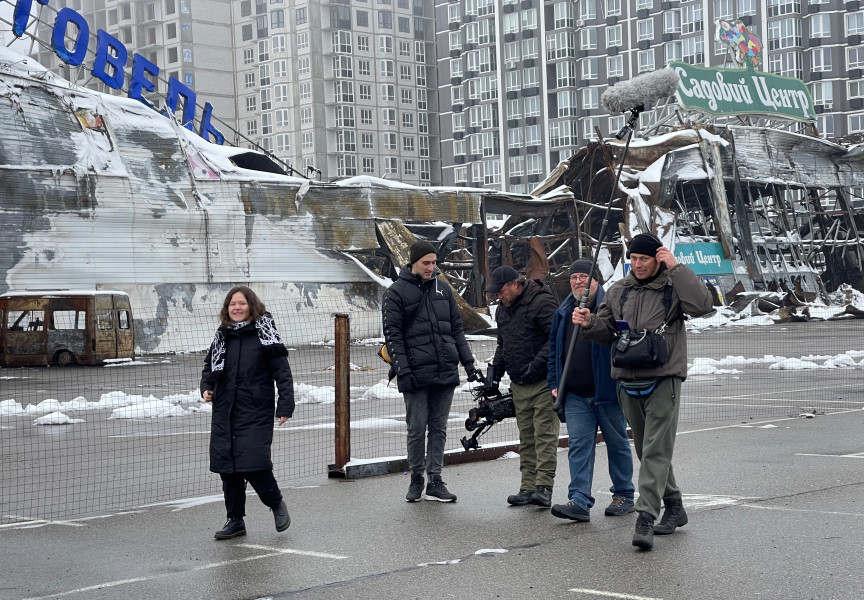
In addition to a multitude of people, a premium documentary series also requires a large amount of archival video content, the rights to which can be challenging to find in a country at war. How did you solve this problem? “First, we have an agreement with Starlight Media to access their archive. This cooperation helped us a lot! The 1+1 media group, Kvartal 95 Studio, the President's Office and other rights holders – all responded to our requests, for which we are grateful. We have been following the heroes for almost a year of the war, so we shot a lot of original material and obtained the rights to use their photo and video archives. In cases where we use videos from the Internet, the procedure of fair use (a legal doctrine according to which the use of copyrighted material under certain circumstances is allowed without the permission of the owner. – MBR) is included, which exists in the international market. This is what lawyers do."
Another difficult task for Kateryna Vyshnevska and Viktor Mirsky was organizing an interview with the President of Ukraine – Volodymyr Zelensky.
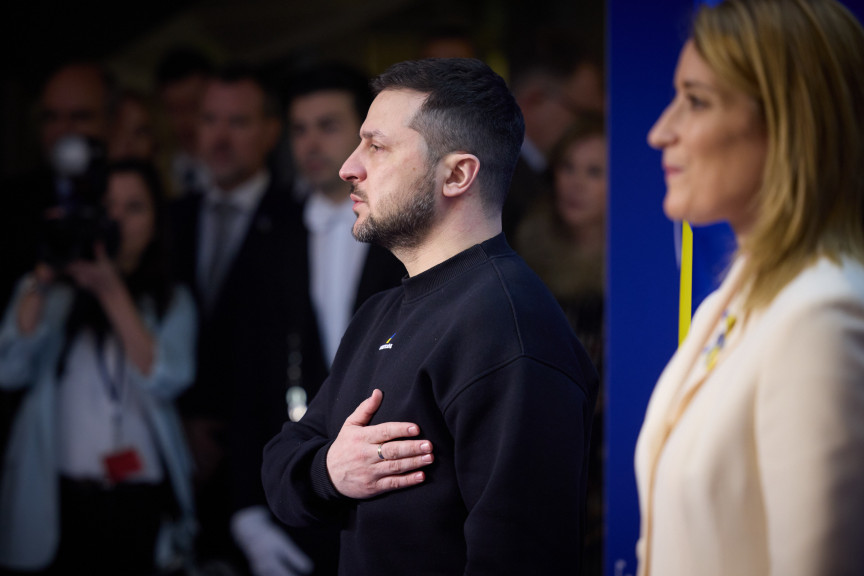
According to the producer, since the Office of the President understands the importance of creating content that communicates Ukrainian messages on the international level, it was possible to get consent by making a correct and attractive pitch: "We presented our case, emphasized what important messages we want to convey to the international audience, that we have a confirmed broadcaster. And since this broadcaster is the main channel of Germany, which supplies us with tanks... The strategic sense of creating this content is obvious." However, it was not easy to organize filming top personalities. "For example, in the last days of December, we were supposed to have an interview with Volodymyr Zelensky. And on the morning of the day of the interview, we learned that the President was in Washington for a meeting with Congress. It is clear that for security reasons we could not have been warned about this in advance. Therefore, we had to reformat our schedule to adapt – we are available whenever the President is. This kind of thing is the routine of filming during the war: you have to be very, very, very flexible and fast," says Vyshnevska.
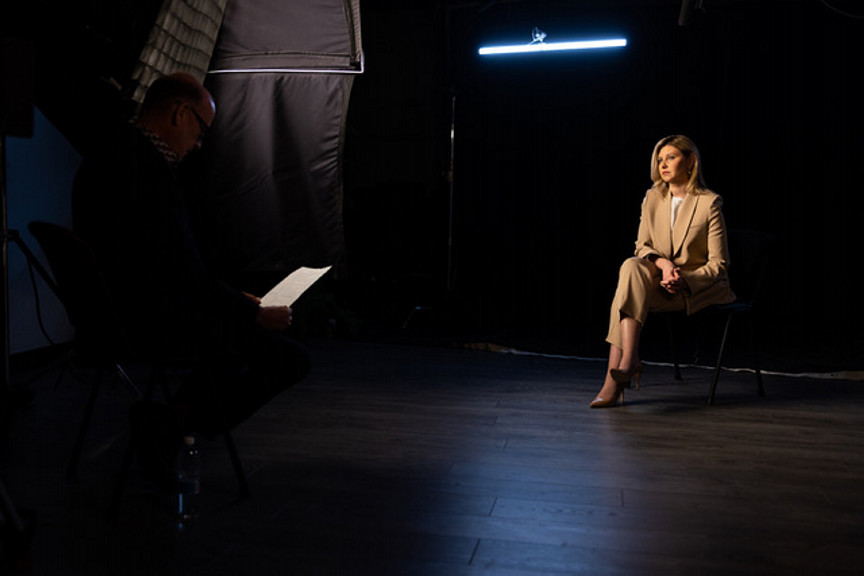
But collecting and shooting the material is only part of the case. Next is post-production, and it is also a separate story in the Citizens at War project. "The process is very complicated, – the producer admits. – We have the primary editing in London because the episode directors and many creative people involved in the project are there. That is, we shoot in Ukraine – and immediately transfer everything to Great Britain in poor quality (because it takes much longer to transmit everything filmed in high quality). Work immediately begins there to make the first edit. And when based on it, we more or less understand which takes "work", these materials are transferred in high quality by our company POSTMODERN (FILM.UA Group) to Australia, where the final post-production takes place because in this country we receive rebates."
Distribution: International Market Is the Priority
As of February 20, 2023, the first three episodes of Citizens at War, namely The First Ten Days, Zelensky, and Women at War, have been filmed, while the next three should be filmed in March-April. "We understood from the beginning that we were dividing the production process into two parts. The first three episodes, filmed in December, will be aired in Germany on the anniversary of the full-scale invasion. And then we will shoot the next ones," says Vyshnevska.
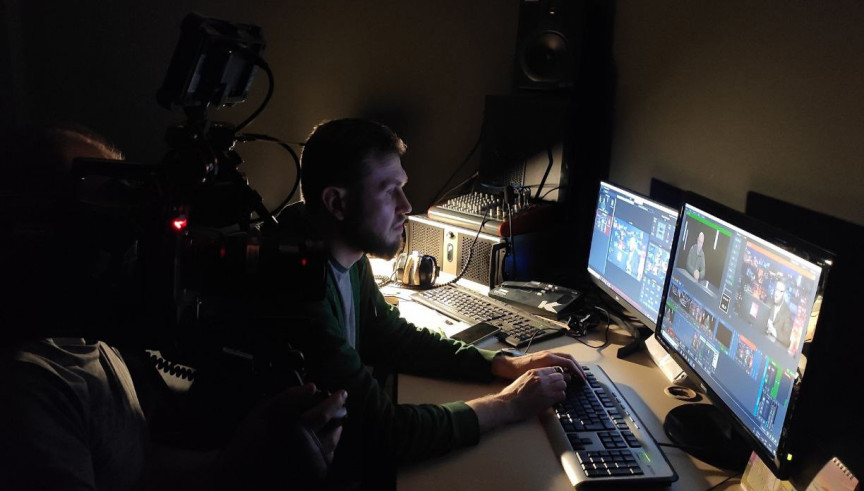
The producer is not yet ready to speak in detail about further distribution plans. However, taking into account the relevance and quality of the project and the power of its international distributor, there can be no doubt – Ukrainian Citizens at War will be shown as widely as possible. In particular, in addition to ZDF, the project is already confirmed to be shown on SVT – the national broadcaster of Sweden, and Histoire TV – a French TV channel. "And, of course, we plan to show it in Ukraine, – Vyshnevska anticipates the question. – We have an agreement with Starlight Media, so the broadcast will take place on one of the channels of this group. We will definitely inform about it. Returning to the issue of very short deadlines: we physically and technically do not have time to deal directly with the issue of broadcasting in Ukraine, because right now the priority is to hand over the project to the German customer. But soon!"

